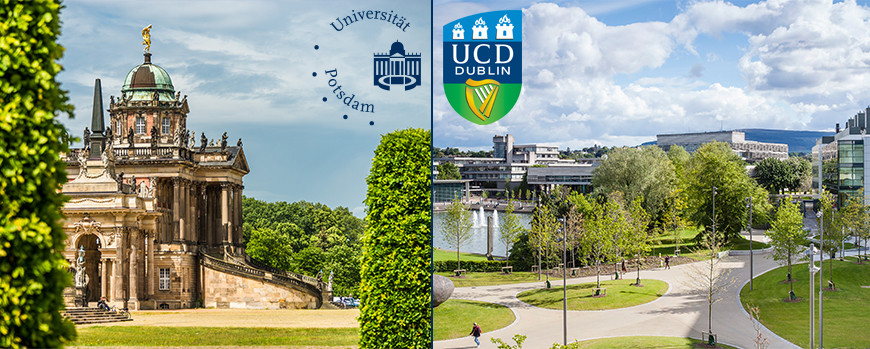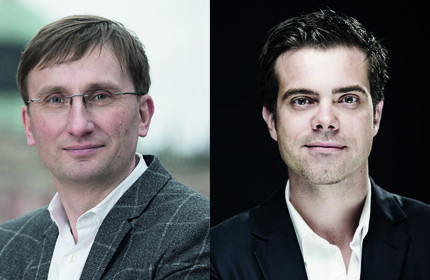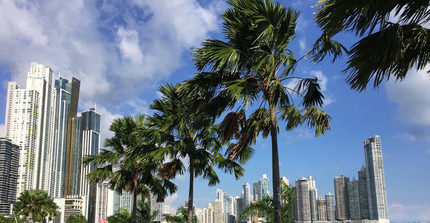International War Studies | Master

Der englischsprachige Masterstudiengang International War Studies ist ein Double Degree mit dem University College Dublin. Studierende verbringen ihr erstes Jahr an der Universität Potsdam und das zweite Jahr am University College Dublin. Nach Abschluss ihrer Masterarbeit in Dublin erhalten die Studierenden einen Doppelabschluss. Dieser Doppelmaster richtet sich vorwiegend an internationale Studienbewerber. Bewerber mit muttersprachlichen Deutschkenntnissen (Niveau C1) können sich für unseren MA War and Conflict Studies bewerben.
| Bezeichnung | International War Studies |
| Abschluss | Master of Arts (Double Degree) |
| Regelstudienzeit | 4 Semester |
| Leistungspunkte | 120 |
| Lehrsprache | Englisch. Belegung einzelner Lehrveranstaltungen auf Deutsch möglich. |
| Studienbeginn zum 1. Fachsemester | Wintersemester |
| Campus | Am Neuen Palais & University College Dublin |
| Gebühren & Beiträge | Semestergebühren und -beiträge: ja Studiengebühren: ja |
Inhalt des Studiums
Der Studiengang International War Studies untersucht die Ursachen, Dynamiken und Kontexte gewaltsamer Konflikte auf nationaler und internationaler Ebene sowie deren Vorgeschichte, Verlauf und Folgen. Ein Hauptaugenmerk liegt auf der Militärgeschichte, der Kulturgeschichte politischer Gewalt und der Militärsoziologie mit den jeweils spezifischen methodischen Methoden und Theorien. Beginnend in der Frühen Neuzeit werden die Wechselbeziehungen von Staat, Gesellschaft und Militär bis in die Gegenwart hinein analysiert. Der Schwerpunkt liegt auf der Neuesten Geschichte (19. und 20. Jahrhundert).
Studienziel und zukünftige Arbeitsfelder
Die Studierenden erlenen Fähigkeiten und Kompetenzen, die Sie in die Lage versetzen, historische und aktuelle Konflikte zu analysieren. Sie vertiefen und erweitern Ihre fachlichen Kompetenzen um wesentliche Inhalte der Militärsoziologie, der Geschichte der Gewalt und der Militärgeschichte. Sie verfeinern den Umgang mit sozial- und geisteswissenschaftlichen Methoden, vermögen Sachverhalte kritisch zu diskutieren und die Ergebnisse Ihrer Arbeit angemessen zu präsentieren.
Aufgrund der internationalen Ausrichtung und des Studiums in Dublin und Potsdam bieten sich den Studierenden globale Berufschancen. Auch in puncto Arbeitsfelder sind keine Grenzen gesetzt: Perspektiven bieten sich in Internationalen Organisationen und NGOs, der Wissenschaft, den Medien, politiknahen Feldern, Denkfabriken, Museen, Stiftungen und in der Kulturvermittlung. Auf unseren Berufsfeldseiten finden Sie weitere Einblicke in konkrete Berufsfelder, in die Ihr Studium führen könnte.

Initiatoren des Studiengangs
„Wir bieten unseren Studierenden beste Studienbedingungen, attraktive Praktikumsplätze und eine internationale Atmosphäre die das Fundament für den späteren Erfolg im Berufsleben legen.“
Voraussetzungen zum Masterstudium
Die Grundlage für eine Bewerbung und für die Aufnahme des Masterstudiums sollte ein starkes Interesse für politische, soziale und geschichtliche Phänomene sein.
Die Voraussetzung für ein Masterstudium ist ein erster berufsqualifizierender akademischer Abschluss, z.B. mit dem Bachelorgrad. Der erste Studienabschluss muss in einem für den MA International War Studies relevanten Fach, wie z.B. Geschichte, Politikwissenschaft, Soziologie oder einem verwandten Fach erworben worden sein. Hierbei genügt es 40 Leistungspunkte in einem der Fachbereiche nachzuweisen. Entstammt der Nachweis aus einem System ohne Leistungspunkte, entscheidet der gemeinsame Prüfungsausschuss über die Äquivalenz der dort erbrachten Leistungen. Da der Masterstudiengang auch auf Englisch abgehalten wird, müssen Sie Sprachkenntnisse, die mindestens der Stufe C1 des Gemeinsamen europäischen Referenzrahmens für Sprachen (GeR/CEFR) entsprechen, nachweisen. Deutschkenntnisse sind nicht erforderlich.
Weitere fachspezifische Zugangsvoraussetzungen können Sie den jeweiligen Zulassungsordnungen entnehmen.
Aufbau des Studiums
Das viersemestrige Masterstudium hat einen Umfang von 120 Leistungspunkten. In der folgenden Übersicht erhalten Sie Informationen zur Gewichtung der einzelnen Module und Lehrformen. Für weitere Informationen konsultieren Sie bitte die fachspezifische Studienordnung oder die Studienfachberatung.
Studentische Stimmen zum Studiengang
Module | Leistungspunkte |
|---|---|
| Pflichtmodule | 60 LP |
| Introduction to International War Studies | 9 LP |
| Militär und Gesellschaft im Zeitalter der „Totalen Kriege“, 1792-1945 | 15 LP |
| Themen und Methoden der War and Conflict Studies | 6 LP |
| Auslandsmodul Dublin 1: Modern History and Politics | 10 LP |
| Auslandsmodul Dublin 2: Political Violence in 20th Century Europe | 10 LP |
| Auslandsmodul Dublin 3: War Studies | 10 LP |
| Wahlpflichtmodule Es müssen zwei Wahlpflichtmodule im Umfang von jeweils 15 Leistungspunkten erfolgreich absolviert werden. | 30 LP |
| Militär und Gesellschaft nach 1945 | 15 LP |
| Internationale Geschichte seit dem frühen 20. Jahrhundert | 15 LP |
| Angrenzende Bereiche der Militärgeschichte | 15 LP |
| Konflikt, Sicherheit und Streitkräfte – historische und sozialwissenschaftliche Zugänge | 15 LP |
| Sicherheitspolitik | 15 LP |
| Masterarbeit | 27 LP |
| Abschlusskolloquium | 3 LP |
| Summe | 120 LP |
Vorteile auf einen Blick
Die internationale Ausrichtung des Studiengangs ermöglicht vielseitige Möglichkeiten zur akademischen Profilierung. Die Wissenschaftsstandorte Dublin und Potsdam beherbergen eine Vielzahl von kulturellen und politischen Institutionen, die ein einmaliges Umfeld für Forschung und Lehre bilden.
Der Studiengang bietet ein internationales Studienumfeld und globale Berufschancen. In Zusammenarbeit mit mehreren Partnern in Deutschland, Irland und Großbritannien bestehen feste Kooperationsvereinbarungen für Praktika in Ministerien, Medienanstalten, Museen und Denkfabriken.
Mit Blick auf die tatsächliche Lebenssituation von Studierenden hat die Universität Potsdam bei vielen Studiengängen die Möglichkeit zum Teilzeitstudium eingeführt. Das betrifft auch das Studienfach International War Studies. Bei dem Ziel zweier Abschlüsse (Double-Degree) ist dies nur im ersten Studienjahr möglich. Näheres dazu unter Teilzeitstudium an der Universität Potsdam.
Bewerbung zum Studium
Sie haben sich entschieden, den Master International War Studies an der Universität Potsdam zu studieren? Dann sollten Sie sich im nächsten Schritt auf den Bewerbungsseiten über das aktuelle Bewerbungs- und Immatrikulationsverfahren informieren.
Häufig gestellte Fragen
Kurze Antworten auf die wichtigsten und am häufigsten gestellten Fragen zur Bewerbung und Immatrikulation für den Studiengang International War Studies (IWS) an der Universität Potsdam und dem University College Dublin.
Häufig gestellte Fragen
Kontakt
Universität Potsdam | Historisches Institut
Christian E. Rieck | Studienfachberatung
Campus Am Neuen Palais
Haus 11, Raum 1.Z04
Kontakt
University College Dublin | UCD School of History
D'Arcey Jackson | School Manager
UCD School of History, University College Dublin, Belfield, Dublin 4
Diese Beschreibung basiert z.T. auf Angaben der Fachspezifische Studien- und Prüfungsordnung für den Masterstudiengang International War Studies an der Universität Potsdam und dem University College Dublin vom 9. Februar 2022 (AmBek Nr. 16/22, S. 626).







